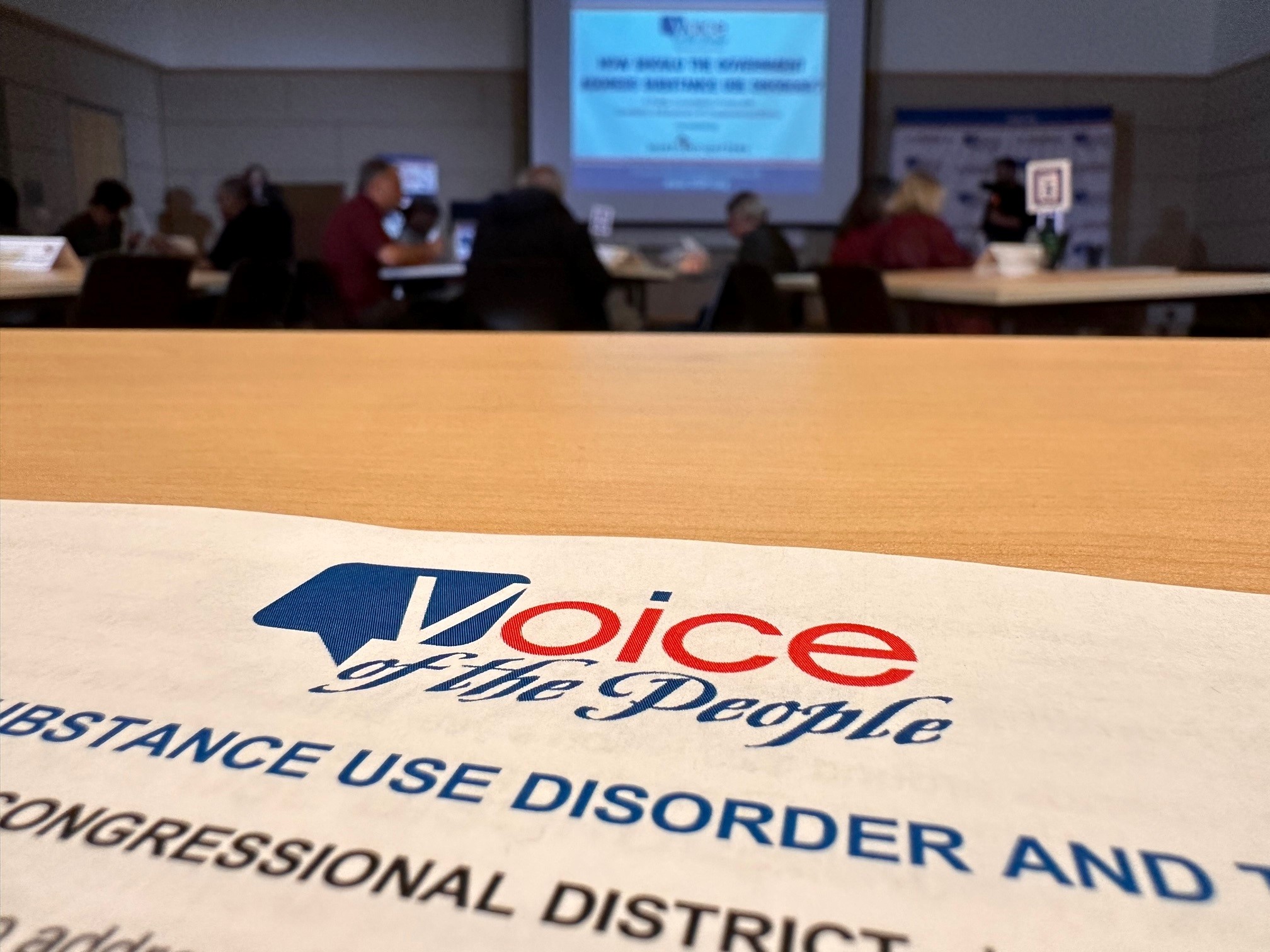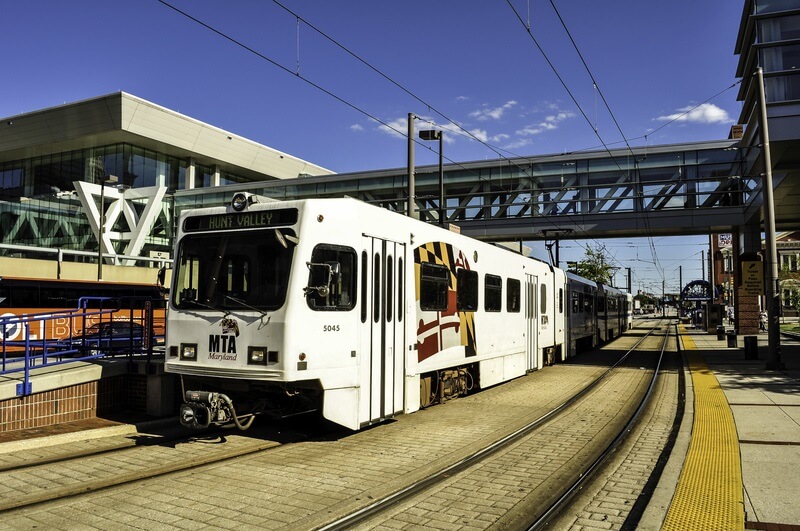Commentary: Western Marylanders find common ground on policies to address addiction crisis

By JP Thomas
The writer is vice president of Voice of the People and director of Voice of the People Action.
This past weekend, Congressman David Trone (D-6th) met with constituents to discuss the findings of a new survey of residents of Maryland’s 6th district on how the federal government should address substance use disorders.
This has been a major issue in the state. Maryland has the highest overdose death rate among all deaths, with 4.68% of annual deaths attributed to drug overdoses. The impacts of this crisis have hit every part of the state, in particular rural communities in Western Maryland.
The public consultation survey revealed the staggering impact of addiction on residents. When asked, 55% of district residents said they know someone who misuses drugs or alcohol, and tragically, 42% said they personally know someone who died from a drug overdose.
Constituents were excited at the degree of bipartisan common ground among the people. The survey of a representative sample found majorities of both Republicans and Democrats in the district agree on a range of federal legislative proposals related to the crisis:
- A huge bipartisan majority of 83% favored increasing federal spending on treatment for substance use disorders by $10 billion, which experts estimate could enable nearly all people who need and want treatment to get it. Eight-in-ten Republicans and nine-in-ten Democrats were in favor. These funds would be used to expand the number and size of treatment centers; offer free or low-cost treatment to those who can not afford it; and train health professionals in best practices.
- Increasing funding for treatment programs in prison, to make them more available and bring them more up-to-date with best practices, was also favored by an overwhelming bipartisan majority (MD-6 overall 78%, Republicans 71%, Democrats 86%).
- A proposal for giving more law enforcement officers the training and tools to divert non-violent offenders with substance use disorders into treatment rather than charge them with a crime was favored by a large bipartisan majority (74%), including 68% of Republicans and 81% of Democrats.
Those present at the public consultation forum were part of the survey’s sample. Representative Trone and his constituents discussed the results of the public consultation survey that they and nearly 750 other residents took on how the government should address substance use disorders. They spoke with one another and Congressman Trone about their personal experiences with addiction, the survey results, and the policies.
At the forum, Tom Greenwell, a resident of Maryland’s 6th district, said, “I appreciate your explanation of the issue. I feel very strongly about this. It affected a friend of mine who probably overdosed off of opioids. He was addicted to heroin. While I totally agree that treatment is key, education is also vital. People aren’t going to know to get treatment if they don’t know it is available. It seems to me that there is bipartisan thinking behind this… What matters is getting things done through funding and action, and not talking about it and arguing about it on the floor of Congress.”
The forum, part of a promising new effort to better connect elected officials and their constituents, was convened by Voice of the People, a nonpartisan nonprofit aiming to give the American people a greater voice in the policymaking process. The forum was co-hosted by Maryland Matters.
“I really appreciate Voice of the People and Maryland Matters for putting this together, because the more we talk about these issues, the more we can normalize that these are problems that everyday Americans struggle with all the time,” said Congressman David Trone. “I love this process, because I love listening to my constituents and trying to learn about issues impacting them. I have my staff here taking notes, so we can get ideas for my work in Congress.”
The public consultation surveys are unique: people go through a process called a policymaking simulation that puts citizens in the shoes of policymakers. Respondents are briefed on the issues, presented a concrete policy proposal, and evaluate pro and con arguments (the kind that lawmakers hear on the floor of Congress), before registering their views.
Policymaking simulations are developed by the Program for Public Consultation at the University of Maryland, and have been reviewed by experts on each side of the debate to ensure that the briefings are accurate and balanced, and that the strongest arguments are made. Anyone can take the policymaking simulation and send their opinions to their representatives, and also watch the livestream of the forum.
This is the tenth such forum Voice of the People has convened with members of Congress, and each time when people have the facts and hear the best arguments from both sides, they are able to consider competing values and the impact on the common good. Surveys routinely show — in the reddest and bluest political districts — that on many of our biggest issues, like health care, immigration, social security, and government reform, large majorities of Americans share a remarkable amount of common ground.
The idea that Americans are too hopelessly polarized to have a reasonable conversation about policy is mistaken. Americans are not as divided as our representative bodies. The American people want elected officials who will listen to the people as a whole. That’s why members of Congress from both parties are taking part in these forums where the views of a representative sample of their constituents are brought to light.
Across the country, public consultations with elected officials are becoming an alternative to town hall meetings that can descend into political posturing and shouting matches. Instead of slogans and sound bites, public consultations help our leaders focus on what policies citizens actually want and promote a productive and empowering discussion between constituents and their representatives.
The stakes couldn’t be higher. Our communities rely on the government to work. Too often our politics are stuck in unproductive conversations that have little to do with real issues and solutions. Public consultations, in partnership with local media outlets like Maryland Matters, give people the tools to make their voices heard and help restore faith in our democracy.




 Creative Commons Attribution
Creative Commons Attribution